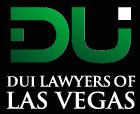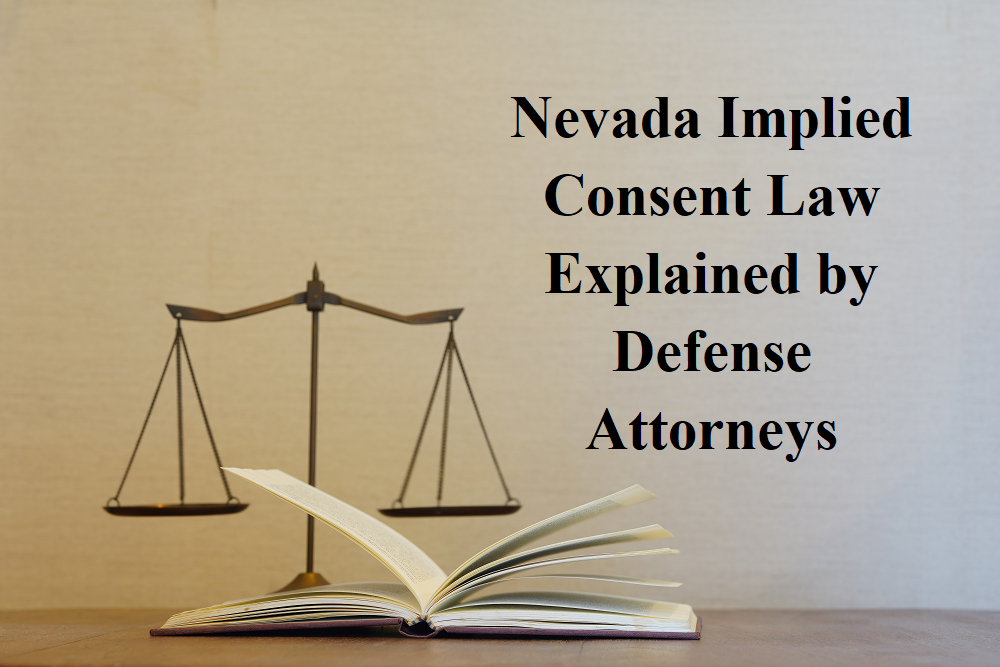The Implied Consent Law applies to drivers pulled over for suspected DUI. The Implied Consent Law imposed obligations upon motorists without their express agreement or even knowledge. As a result of Nevada’s Implied Consent Law, in specific circumstances, motorists cannot refuse an evidentiary test of their blood or breath without substantial consequences. As you can imagine, the Implied Consent is a widely debated part of the law in Nevada and many other states for several reasons. Our Las Vegas DUI lawyers share what you need to know.
What Is the Implied Consent Law in Nevada?
The Implied Consent Law in Nevada is codified at Nevada Revised Statute 484C.160¹, which defines the legality of evidentiary testing of drivers suspected of DUI in the state. To summarize, the law states that any person driving on a public road or highway who is pulled over for suspected DUI is deemed to have impliedly consented to submit to a breath, blood, or urine test to determine the presence and/or levels of impairing substances.in their system. These tests are meant to determine if the motorist is legally “DUI” at the time that person was operating a vehicle.
In other words, simply driving on a Nevada roadway obligates you to submit to such testing if pulled over by law enforcement for suspicion of DUI. This legally enforced or “implied” consent to testing is the essence of Nevada’s Implied Consent Law.
What Does Implied Consent Mean for Las Vegas Drivers?
For Las Vegas drivers, implied consent means you have already agreed to a blood draw, breathalyzer test, or urine test if you are pulled over for DUI. Here are more details on what the implied consent law means for drivers in Las Vegas:
Forced Blood Draw After DUI
If an officer has reasonable grounds to believe a driver was operating a vehicle while under the influence of alcohol, marijuana, or other controlled substance, or engaged in prohibited conduct as defined by NRS 484C.110², 484C.120³, 484C.130⁴ or 484C.430⁵, that officer can seek a warrant and thereafter force a blood draw even if the driver refuses. In these circumstances, the police are within their rights to obtain a warrant and use reasonable force to get the blood sample from the driver.
Blood Tests for Unconscious Drivers
In some cases, the driver is no longer conscious due to an accident or their level of inebriation. NRS 484C.160 gives an officer the authority to have a blood sample taken in order to test for the presence of alcohol or drugs even when the driver is unconscious.
Penalties for Refusing an Evidentiary Test Under the Implied Consent Law
When a driver is informed of the implied consent law but still refuses a breath, urine, or blood test, there are serious consequences, including:
- A warrant to use reasonable force to obtain a blood sample.
- Driver’s license revocation of 1-3 years (depending on previous test refusals) on top of the revocation the individual is already facing for their DUI.
- Evidentiary test refusal can be used against the driver as evidence of guilt in a trial.
Regardless of your test results, the DMV can revoke your license because you refused evidentiary testing. The Implied Consent Law allows the DMV to revoke your driver’s license simply because you refused.
Many argue that requiring these tests can subject people to unfair treatment and penalties. If you have been mistreated in connection with Nevada’s Implied Consent law, contact our Las Vegas DUI attorneys for a free consultation.
Limitations to the Implied Consent Law
There are some limitations to Nevada’s Implied Consent Law that could protect you from having to provide blood samples. For example:
- If you have hemophilia or a heart condition that requires the use of an anticoagulant, you are exempt from a forced blood draw. However, you may still be required to submit to a breath or urine test if the officer believes you were driving under the influence.
- If you are a minor under the age of 18, the officer must make reasonable attempts to notify your parents or legal guardian of the test.
- Law enforcement must have reasonable grounds to believe you were driving under the influence before enforcing implied consent to an evidentiary test.
It is vital that you contact a skilled DUI attorney as soon as possible to help collect the proper evidence and start building a strong case for your defense.
Nevada DUI Implied Consent FAQs
Q. What test do I have to take under the implied consent law?
Nevada implied consent law requires drivers suspected of DUI to submit to an evidentiary chemical test, including:
- Blood test
- Urine test (in limited circumstances)
- Breath test
These tests are meant to determine the concentration of alcohol or drugs in the body. It is illegal to refuse a blood test as explained in NRS 484C.160 unless your health exempts you.
Q. Can I get my driver’s license back if I refuse a test?
Your license is automatically revoked if you refuse an implied consent test. However, you can choose to challenge the revocation by requesting a DMV hearing. An experienced DUI lawyer can help you through this process and ensure your rights are upheld. The DUI attorneys at Hayes Wakayama have been very successful at challenging refusal cases.
Q. Can I choose which test to take when pulled over for DUI?
When an officer has reasonable ground to believe a driver is intoxicated from alcohol and NOT drugs, that person can choose between a breath test or a blood test (in first offense cases) in that circumstance. However, if the suspected DUI driver chooses to take a blood test when breath testing is available, that individual can be charged fees for the blood test if convicted of DUI.
Q. What if I refrain from saying anything?
Even if you do not verbally refuse to take an evidentiary test, law enforcement officers can take your silence or vague answers as a refusal to submit to testing. In fact, refusing to respond and requesting to speak with an attorney constitutes a refusal under Nevada law.
Q. Can I contest blood test results?
Absolutely. Both alcohol and drug analysis are performed by machines that are subject to both human and machine error, not to mention sample collection, chain of custody, refrigeration and/or sample preparation error. Several factors can play into unreliable blood/breath test results in a Nevada DUI case. A defendant can also request that his/her blood sample be independently tested. Conflicting results can raise a reasonable doubt that law enforcement conducted the test properly.
Las Vegas DUI Lawyers that Will Challenge your Alleged Implied Consent Refusal in Las Vegas
It can be overwhelming to learn that your blood alcohol content (BAC) is alleged to be .08% or higher. You may be wondering what to do next and how you can protect yourself and your family. Our Las Vegas DUI attorneys have the knowledge and experience to build a strong defense that will result in decreased charges or even a dismissal. Contact our Las Vegas DUI attorneys for the support and advocacy you need to get fair treatment.

